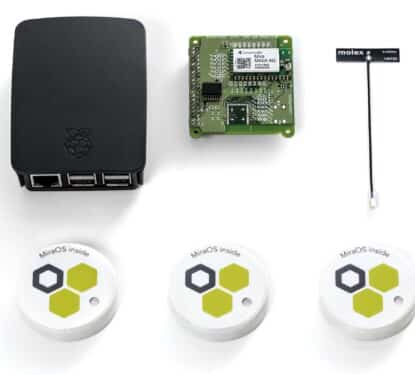The divestment and realignment trend continues in the lighting sector as another market leader sells off its luminaries business and refocuses efforts on smarter technology. Munich-based OSRAM made a number of moves towards location based services and connectivity technology in the past few weeks and announced the sale of its lamps group Ledvance to a Chinese consortium at the beginning of March.
Divestment has been a popular theme amongst the established lighting giants, with General Electric and Philips both undergoing significant restructuring in the past few years. While lighting remains central to their and OSRAM’s business, the moves point to a focus the information technology and data markets rather than pure illumination.
For OSRAM, as it was for Philips, the sale was not as simple as, perhaps, it should have been. After being established as a separate entity in April last year, OSRAM agreed a $423 million (€400 million) sale of the division to IDG Capital Partners in July. In October, however, German regulators held up the deal until they were provided more information. The Committee on Foreign Investment in the United States (CFIUS) also sought to question the agreement.
CFIUS was responsible for disrupting and ultimately preventing Philips’ proposed sale of its Lumileds chip division to China's GO Scale Capital in January last year for $2.8 billion. The same US committee also put an end to Cree's sale of Wolfspeed to Germany's Infineon last month, and LED equipment maker Aixtron's sale to a unit of China's Fujian Grand Chip Investment Fund LP.
Philips eventually sold its Lumileds chip operation, but to a New York-based investment firm Apollo Global Management, for $1.5 billion, $1.3 billion dollars less than they would have achieved in the original deal. OSRAM, however, increased the value of the sale by approximately 25% over the initial figures reported back in July.
After obtaining all necessary approvals, the sale of Ledvance to the Chinese consortium was successfully completed on March 3rd for $529 million (€500 million). Osram additionally expects license income of as much as €100 million over the coming years for the use of trademark rights. In connection with the transaction, Osram and MLS have also signed a letter of intent under which MLS may purchase LED chips from the new Osram plant in Kulim, Malaysia.

The decision by Osram’s managing board to sell Ledvance followed an intensive review of strategic options for the general lighting lamps business. “The successful closing of the transaction is a milestone for Osram in its strategic realignment. As a high-tech company, we will be able to participate in attractive future growth markets even stronger in the future,” said Olaf Berlien, Chief Executive Officer of OSRAM Licht AG.
Underlining its new approach OSRAM recently completed an installation of wireless radio beacons in 23 high-end fashion retail stores in Switzerland. None of the installations, however, incorporated OSRAM’s lights. The stores, including Guess and Marc O'Polo, simply attached the wireless radio chips to existing lights for power and to enable their indoor location based services. Lighting stalwart OSRAM, at least for this transaction, is a wireless technology vendor.
“In this case, we used an Einstone track adapter to integrate the Einstone beacons into the lighting infrastructure of the respective stores,” an Osram spokesperson told LEDs. “The advantage of this procedure was that retailers could simply retrofit Einstone in the existing lighting infrastructure — without any need to change the whole lighting.”
Furthermore, OSRAM is manufacturing the Bluetooth transmitters itself, under its one year old Einstone indoor-positioning scheme. The system sends promotional messages and notifications to customers’ smartphones to boost sales. The stores have experienced a 10% increase in sales since the introduction of the technology.
“Customers entering the store now benefit from personalized welcome messages and offers,” OSRAM says on its website. “In-store purchase behavior is captured at the point of sale and made accessible to [to the retailer] via the Beaconsmind Suite dashboard.”
After a fair bit of hype and relatively little action, indoor positioning and location-based services are finally showing signs of life. Philips is running pilot projects with Carrefour in France and Aswaaq stores in Dubai; Current by GE is running five pilots; and Acuity claims to have Internet of Things lighting in nearly 40 million sq ft of retail space.
“The transition to LEDs for lighting has come at the same time as the development of the Internet of Things, which is about to disrupt the building automation systems industry and opens up the possibility for lighting control to play a much more important role,” explains Memoori’s last comprehensive report on the lighting controls business for smart buildings.
If the lighting sector still hopes to position itself at the heart of connected services in the smart commercial buildings market, indoor positioning and location-based services is likely to be crucial. As pilots mature, we should expect to see the recent strategies of lighting’s big player come to fruition.
[contact-form-7 id="3204" title="memoori-newsletter"]



